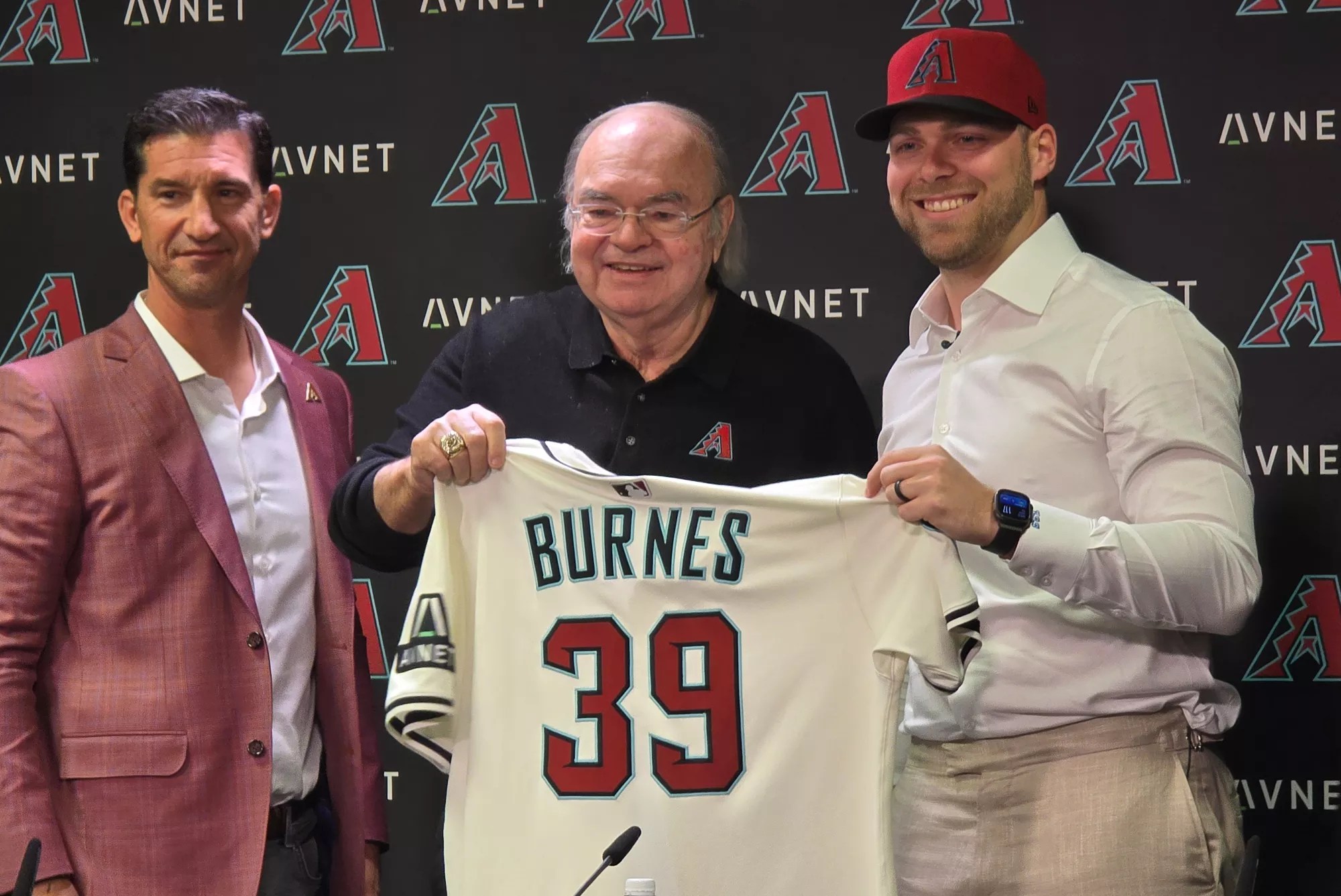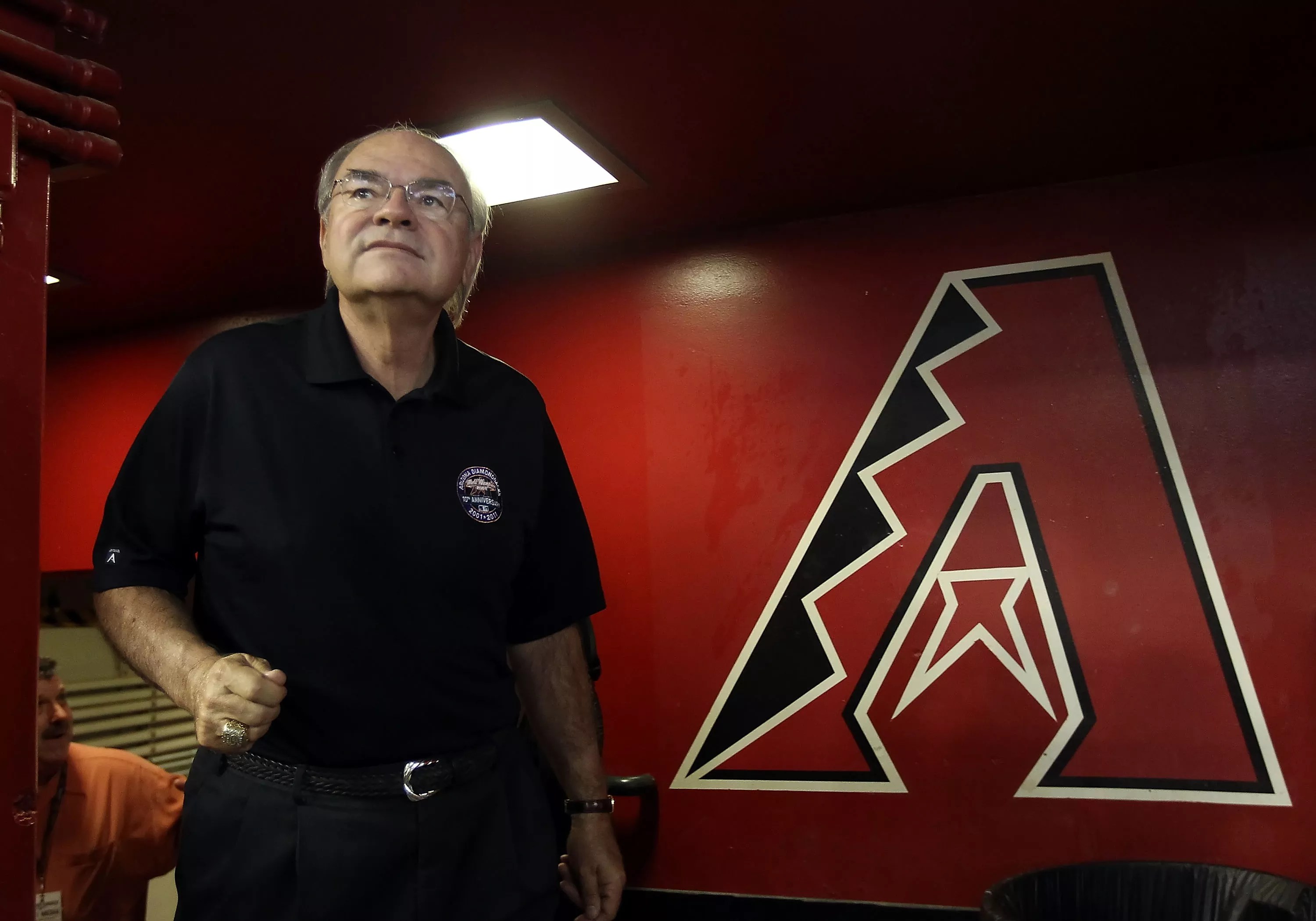
Zach Buchanan

Audio By Carbonatix
Nine years ago, cameras filled the Chase Field interview room as the Arizona Diamondbacks introduced a new star pitcher. Days earlier, the club had stunned baseball by signing right-hander Zack Greinke, one of the best pitchers of his generation. All it had taken was a franchise-record contract of six years and $206.5 million.
Greinke more than earned that money in Arizona, winning four Gold Gloves, making three All-Star teams and putting the final touches on what will be a Hall of Fame career. Yet the Diamondbacks didn’t get quite what they hoped from their investment. Arizona made the playoffs just once during Greinke’s time with the team, and Greinke’s salary made it difficult for the team to upgrade the roster around him.
Ultimately, the Diamondbacks traded Greinke away with more than two years left on his contract, eating a significant amount of his remaining salary to do so.
Few of Arizona’s dalliances with big-name starting pitchers have gone well since. A splashy 2019 signing of left-hander Madison Bumgarner turned out to be disastrous, with the team cutting him with more than a year remaining on his contract. Last year, Arizona handed sizable deals to Eduardo Rodriguez and Jordan Montgomery, only for both to struggle with health and poor performance. If the Diamondbacks became gun-shy after that, it’d be hard to blame them.
Instead, the Chase Field interview room again filled to the brim Wednesday afternoon as Arizona repeated a familiar ritual. Cameras clicked as team owner Ken Kendrick presented a Diamondbacks jersey to Corbin Burnes, one of the best starting pitchers of his generation. To land its new ace, Arizona had again committed a franchise-record contract – $210 million over six years – and again surprised the industry.
If anyone with the team harbored reservations, given the team’s recent history with free-agent pitchers, it wasn’t evident.
“Not every day do we have the opportunity to sign a player of Corbin’s caliber, to add to a team that we feel over the last couple of years has grown into one of the better teams in the National League,” said general manager Mike Hazen. “We’re looking to push forward with the best team possible for the next year and beyond, and there’s no better way to do that than to add a No. 1 starting pitcher to the top of the rotation.”
Few pitchers have been as impactful as Burnes has, it’s true. He’s made four straight All-Star teams, won a Cy Young award and has a career earned run average of 3.19. He throws hard, strikes out a lot of batters and has proven durable. The Diamondbacks – already a formidable club coming off a World Series appearance in 2023 and an 89-win season last year – are immediately stronger with Burnes atop the rotation.
Yet, amid the celebratory handshakes Wednesday, Diamondbacks fans who’ve been paying attention the last decade had to wonder: Have the Diamondbacks really entered a new era of playing and spending like a contender, or did they just sign another albatross?

Ken Kendrick has been the managing general partner of the Arizona Diamondbacks since 2004.
Christian Petersen/Getty Images
A big surprise
More than anything, that Burnes is now a Diamondback is a testament to recognizing a good thing when it smacks you in the face. Or, more accurately, when his agent calls you to say how much he’d like to pitch for your team.
According to Kendrick, the Diamondbacks “weren’t anticipating” they’d sign Burnes or any other top free agent when the offseason began. Arizona had already run a franchise-record payroll of roughly $163 million last year – hardly the highest in baseball but a significant stretch from past years for Arizona – and lost free agents to lucrative deals with other teams. On top of that, the rotation was full, thanks in part to the previous year’s spending spree that brought Rodriguez and Montgomery to town.
But one day in December, superagent Scott Boras phoned Kendrick with a surprise message. Burnes would really love to play in Arizona, the agent said. The pitcher and his family had made their offseason home here and were eager to live in the Valley year-round. What’s more, Burnes would be willing to take less money to be a Diamondback. Would Arizona be interested?
Kendrick tracked down his front office. Hazen was in New Zealand on vacation, and his top lieutenant, Amiel Sawdaye, was in France. From different hemispheres, they hammered out a deal over a few days. Burnes’ contract comes with an opt-out after the second year, though it’d surprise many if he exercised it. Some of the money on his deal is deferred, to be paid out years down the road. Other teams offered Burnes “much grander economic situations,” Boras said, but there’s something to be said for playing where you want to.
“Getting to wake up and take my son to school in a couple years is a lot better than having to FaceTime him in the morning and say, ‘Have a good day at school,'” said Burnes, who has a toddler and infant twins. “That was a big piece of it.”
And, of course, Burnes wants to win. Over his seven-year career in the major leagues, Burnes’ team has missed the playoffs only once. By contrast, the Diamondbacks last made the playoffs in back-to-back years more than two decades ago. They nearly broke that drought in 2024, winning 89 games but losing a playoff spot on a tiebreaker. Despite a brutal finish to the year, it was the team’s highest win total since 2017, the year before Burnes made his major-league debut.
Despite the agonizing finish to last season, Arizona is closer to being a perennial contender than it’s been since Randy Johnson and Curt Schilling were on the mound.
“I want to win the entire time I’m here,” Burnes said. “This is a team that’s built to do that.”
This time, the Diamondbacks really hope that’s right.

Corbin Burnes signed with the Diamondbacks for six years and 0 million, a franchise-record contract for the team.
Megan Briggs/Getty Images
‘The right move’
The first years of pitcher deals haven’t gone well in Arizona.
Greinke’s first year as a Diamondback in 2016 was awful. The right-hander pitched below his standard, the team lost 93 games, and Kendrick canned the team’s manager and general manager. Hazen and manager Torey Lovullo took over, and though they’ve brought much-needed stability to the organization, they’ve had their misses, too.
Entering the 2020 season, the team signed Bumgarner and expected to compete for a playoff spot, only for him and the club to face-plant for the next two seasons. Kendrick allowed Hazen to spend on pitching again last offseason, and while Arizona played well, Rodriguez and Montgomery had little to do with it.
“We’ve made mistakes,” said Derrick Hall, the team’s president and CEO. The club has also learned from them, Hall said. Picking the right player to throw money at is one thing. Picking the right time to do it is another.
“We’ve always thought, ‘We’re one player away,'” Hall said, “and we found out we weren’t.”
This time, though, there’s a good argument that the Diamondbacks were one player away. The roster is brimming with talent, led by young superstar Corbin Carroll and MVP candidate Ketel Marte. The Diamondbacks already had an accomplished top of its rotation, led by right-handers Zac Gallen and Merrill Kelly. The team continues to develop younger players in the minor leagues.
In the past, the Diamondbacks embarked on spending sprees after squinting at tea leaves, emboldened by signs that the club was ready to take a leap. This version of the Diamondbacks made that leap two years ago by zooming to the World Series.
“This is icing on the cake,” Hall said. “This is one more piece that should get us closer to our goal.”
Yet, until it works out as intended, it will be fair to wonder if it will. In the age of rampant elbow injuries, long-term contracts for pitchers always carry extra risk.
Burnes is 30, entering the age range when physical gifts start to slip. Baseball evaluators already have concerns about a strikeout rate that has declined each of the past three seasons. If he starts to fall off, or if Arizona’s depth isn’t as good as it appears, Burnes’ deal might suck up too much payroll space for Hazen to meaningfully improve the team in other areas. Greinke was pitching like an ace when Arizona traded him away, yet his contract was such a millstone that the club had to cover some of his remaining salary to facilitate a swap.
It’s probably unmerited doomsaying to predict the Diamondbacks will live to regret their latest headfirst dive into big-contract waters. Burnes is a great pitcher who instantly makes the team more exciting and more dangerous. If he lived anywhere else in the offseason, the Diamondbacks might never have had a shot at him.
“It was always the right move,” said Sawdaye, the team’s assistant GM.
Even with the right pitchers, the Diamondbacks have made the wrong moves before. Perhaps with Burnes, things will finally work out the way they intended.